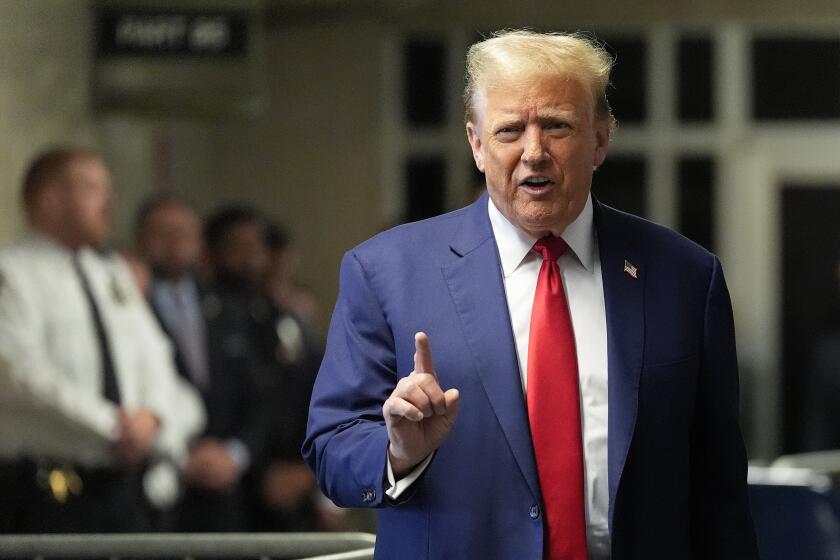Big Greens’ Double-Dealing Dooms Dolphins
A bizarre alliance stretching from Vice President Al Gore through major U.S. green groups to narco-traffickers in Mexico, Venezuela and Colombia is now pushing the vile “dolphin death bill” that threatens to clear the House as early as next week.
One of the great triumphs of grass-roots environmentalism in this country was the battle in the late 1980s to ban the sale of “dolphin unsafe” tuna, meaning fish caught by nets that also ensnared dolphins. Tuna fishing’s toll on the dolphins of the eastern Pacific was dreadful, killing at least 7 million dolphin over 15 years. A turning point in the campaign was the surrender of the Heinz subsidiary Star Kist. A U.S. law banning the sale of dolphin-unsafe tuna soon followed.
Last summer, the Mexican government quietly let it be known that under the terms of the North American Free Trade Agreement and the General Agreement on Tariffs and Trade, it should be permitted to sell its canned tuna in U.S. markets, even though its fishing fleets had taken no measures to ensure that dolphins were not part of the regular haul.
It will be recalled that at a crucial moment in the NAFTA battle in late 1993, the Clinton administration was able to brandish a statement of support for the free trade agreement from seven major environmental organizations. Among them were the Environmental Defense Fund, Natural Resources Defense Council, World Wildlife Fund and the National Wildlife Federation.
The Clinton administration adopted the view that the Mexican request was entirely legitimate, but that the big green groups had to be trotted out once more, to provide the necessary political camouflage. Closed-door sessions were held at the Mexican Embassy in Washington.
The House bill fronted by the greens repeals the current dolphin protection law and will permit the unlimited sale of dolphin-unsafe tuna in the U.S. There are many devious components to this legislation, but perhaps none more egregious than language that will allow the Mexican tuna to be marketed under the “dolphin safe” seal, even though such tuna may have been caught by the “chasing and encircling method,” known to kill thousands of dolphins each year.
The litany of double-dealing is a familiar one, starting with Ozone Man himself, Gore, who has already appeased Norwegian whaling interests last year in the name of GATT and now seems intent on using his environmental credentials to forge a similar deal for Mexico on dolphins.
Gore wrote last month to all members of Congress, saying that the administration “strongly supports” the dolphin death bill. The vice president trots out the astonishing argument that we have to kill more dolphins to protect the ocean ecosystem. To buttress this laughable proposition, he flourishes the bill’s support by the five big national green groups.
Sounding very much like a fully fledged free-market environmentalist, Greenpeace president Barbara Dudley says that, “The current dolphin-safe tuna laws represent a kind of green protectionism. We need to give Third World nations economic incentives to protect the oceans.” There is vigorous opposition to the bill from Earth Island Institute and the Ralph Nader-led Citizens Trade Campaign.
And why would there be such vehement pressure from Mexico, Colombia and Panama? All of these countries have tuna fishing fleets and tuna hauls that under existing laws can’t be imported into the U.S. But tuna is not the only commodity thus inconvenienced. Tuna fleets in Latin America have long been associated with the smuggling north of cocaine and heroin. Last year the Nataly I, a tuna boat registered in Panama but owned by the Cali cartel in Colombia, was seized in the Pacific by U.S. drug agents, who found a 12-ton cargo of cocaine on its way to Mexico, staging point for 80% of the cocaine entering the U.S.
A few weeks ago, Jose Castrillon Henao, owner of many tuna boats including the Nataly I, revealed after being arrested in Panama that he has given significant contributions to the campaign chests of Panama’s president and attorney general. In Colombia and Venezuela, there are similar close ties between the drug kings and the politicians rushing to Washington to call for the dismantling of U.S. dolphin-safe laws in the name of free trade. In Venezuela, indeed, cocaine is often familiarly termed atun blanco--white tuna.
Here we see the consequences of NAFTA: bad for workers on both sides of the border, bad for dolphins and a bonanza for corrupt political elites and drug smugglers.
More to Read
Get the L.A. Times Politics newsletter
Deeply reported insights into legislation, politics and policy from Sacramento, Washington and beyond. In your inbox three times per week.
You may occasionally receive promotional content from the Los Angeles Times.






